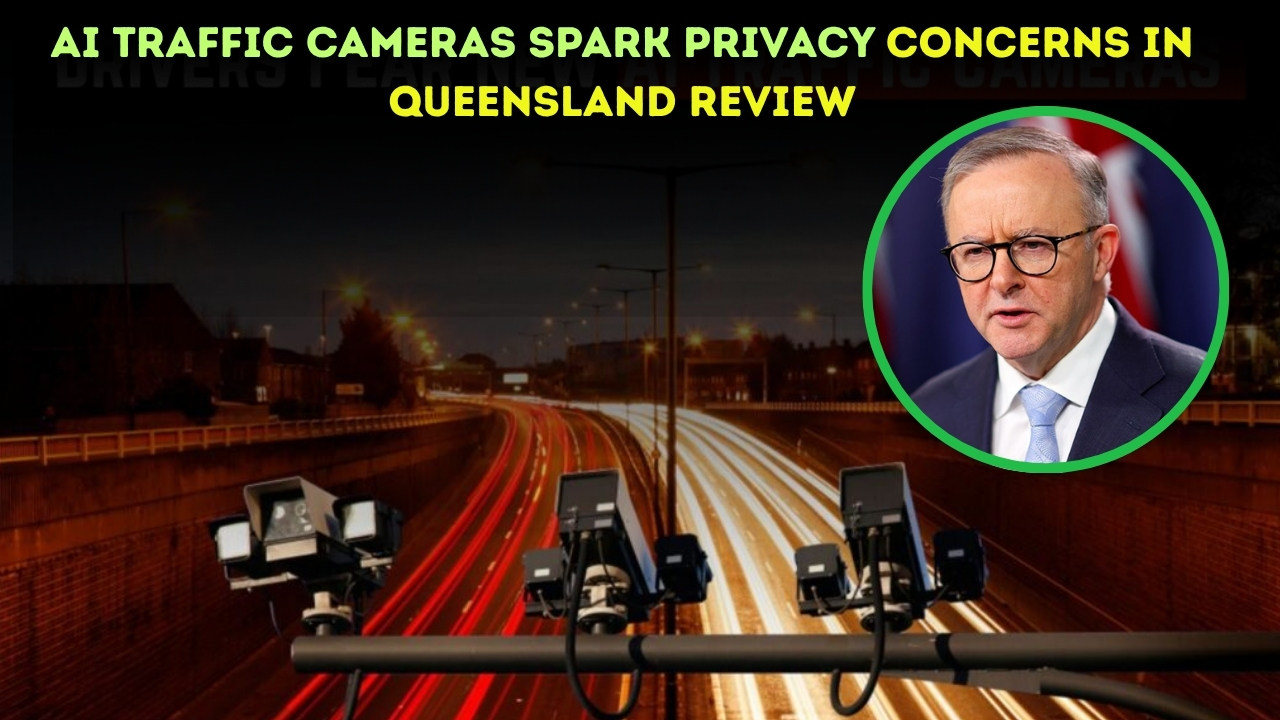If you’ve been driving around Queensland lately, you may have noticed something new perched above the roads—sleek, smart-looking cameras that are a little more than just your regular speed traps. These are AI-powered traffic cameras, and while they’re designed to catch distracted drivers, enforce seatbelt rules, and generally make our roads safer, they’ve managed to spark something else entirely: a heated debate over privacy.
Now, to be fair, no one’s denying that road safety matters. Every year, far too many accidents in Australia happen because someone was texting, fiddling with a device, or just ignoring seatbelt laws. That’s exactly what these cameras aim to reduce. They use artificial intelligence to scan vehicles, detect if someone’s holding a phone, or even if passengers are buckled up properly. Sounds efficient, right? Well, yes—but here’s where things get sticky.
The Core of the Privacy Debate
The big concern, and honestly the part that makes most people uneasy, is how much data these AI systems are collecting. These cameras don’t just snap a quick photo like the old school speed cameras. Instead, they record high-resolution images and sometimes even video, before using algorithms to analyze what’s happening inside a car.
For many Queenslanders, that feels invasive. Do we really want machines peeking into vehicles, spotting every detail, and then storing that information somewhere? On the flip side, supporters argue that these AI cameras only flag images when a potential offence is detected, and the rest are automatically deleted. But, to be fair, the average driver doesn’t really know how long their data is kept, or who has access to it. That lack of clarity is what fuels distrust.
Government’s Standpoint
The Queensland Government insists the technology is strictly for enforcement and safety. Officials argue that since the rollout of AI traffic cameras in other states—like New South Wales—the rate of distracted driving has dropped noticeably. They say the cameras are a proactive tool to prevent tragedy, not some mass surveillance experiment.
But here’s the thing: public trust is fragile. People want road safety, sure, but they also want assurance that their personal privacy isn’t being quietly traded away in the process. The government has now launched a review to examine exactly how these cameras are being used, what data they’re retaining, and whether stricter safeguards need to be introduced.
Safety vs. Privacy: A Tough Balancing Act
It’s not hard to see both sides. On one hand, the cameras are proven to catch offenders who might otherwise slip past unnoticed. On the other, if people start feeling like they’re being constantly watched, resentment grows—and that can actually backfire on compliance.
Imagine this: you’re driving late at night, singing along to your playlist, and suddenly you see one of those cameras flash. Even if you weren’t breaking a rule, you might feel uneasy knowing that a machine just analyzed what was happening inside your car. That feeling of being “watched” is exactly what critics argue could erode public trust in law enforcement.
Pros and Cons of AI Traffic Cameras
| Pros | Cons |
|---|---|
| Improve road safety by reducing risky driving | Raise concerns about privacy invasion |
| Catch distracted drivers effectively | Data storage and retention not always transparent |
| Proven to lower road accidents in trials | Potential for misuse of collected information |
| Can operate 24/7 without human fatigue | Creates public distrust if not properly regulated |
The Queensland review is expected to carefully weigh all these factors. If stronger privacy protections are built into the system, it might strike a better balance between safety and personal freedom. For example, implementing stricter limits on data storage, ensuring independent oversight, and making the deletion process more transparent could ease a lot of concerns.
At the end of the day, AI cameras are probably not going away anytime soon. They represent a future where technology does more of the heavy lifting in law enforcement. But whether Queenslanders embrace or resist them will depend largely on how open and honest the government is about privacy.
Because, honestly, safety and privacy don’t have to be enemies. But if one keeps overshadowing the other, the debate is only going to get louder.
FAQs
1. What do AI traffic cameras in Queensland actually detect?
They detect drivers using mobile phones, not wearing seatbelts, and sometimes other risky behaviours.
2. Are all images taken by AI cameras stored permanently?
No, most images are deleted if no offence is detected, though critics argue storage rules need to be clearer.
3. Has this technology been used elsewhere in Australia?
Yes, New South Wales and Victoria have already rolled out similar AI cameras.
4. Can AI traffic cameras record video inside cars?
Some cameras can capture short video clips, though this depends on the model and settings in use.
5. Why is there a review in Queensland?
The review was launched to address growing public concerns about privacy, data use, and accountability.




